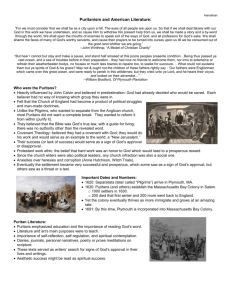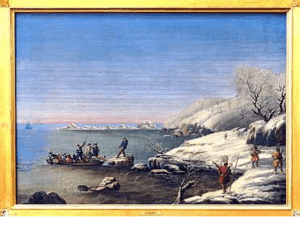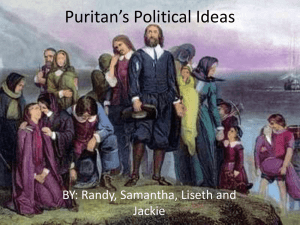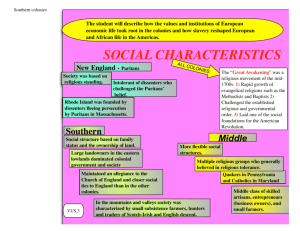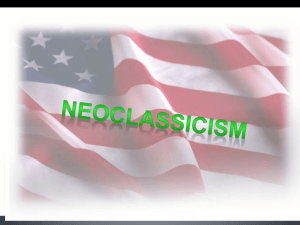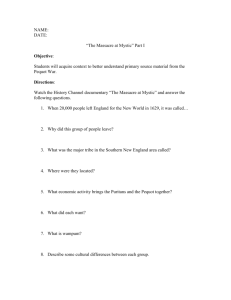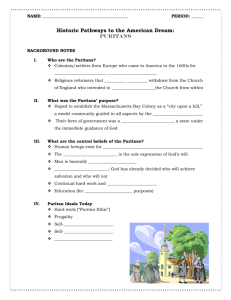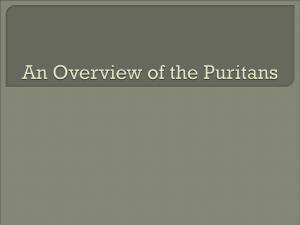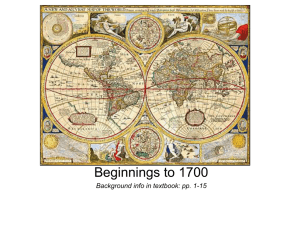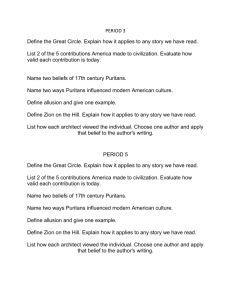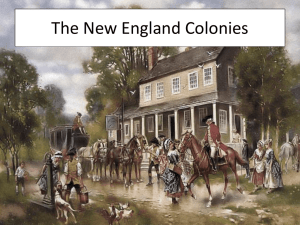Notes for Early Native Americans/Puritans
advertisement
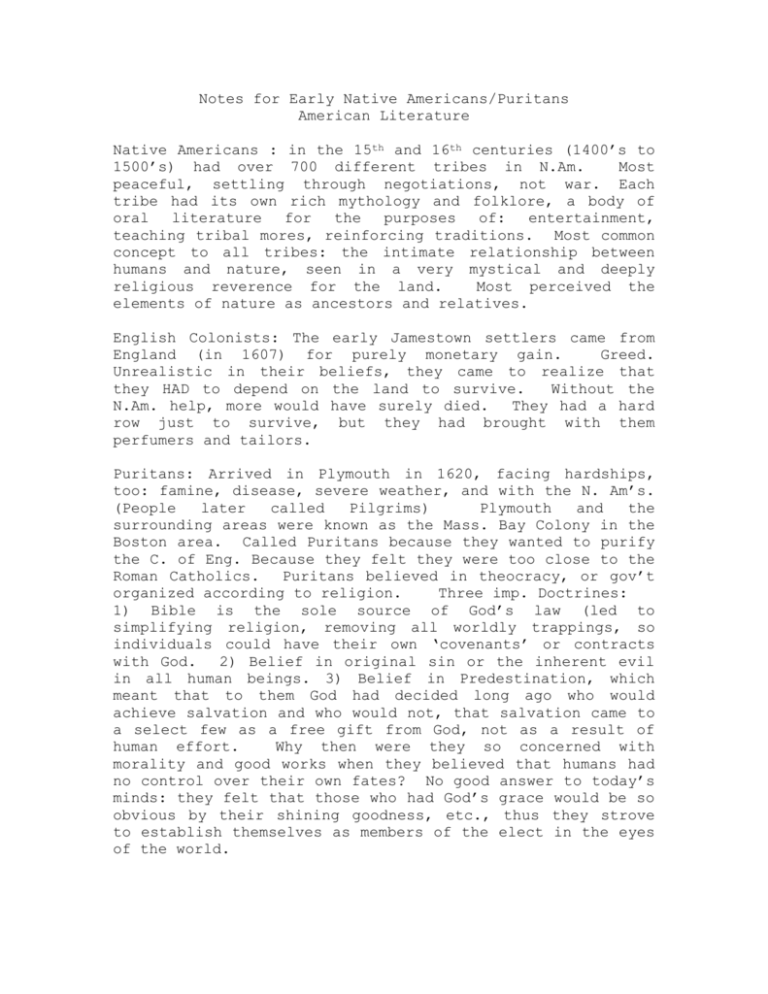
Notes for Early Native Americans/Puritans American Literature Native Americans : in the 15th and 16th centuries (1400’s to 1500’s) had over 700 different tribes in N.Am. Most peaceful, settling through negotiations, not war. Each tribe had its own rich mythology and folklore, a body of oral literature for the purposes of: entertainment, teaching tribal mores, reinforcing traditions. Most common concept to all tribes: the intimate relationship between humans and nature, seen in a very mystical and deeply religious reverence for the land. Most perceived the elements of nature as ancestors and relatives. English Colonists: The early Jamestown settlers came from England (in 1607) for purely monetary gain. Greed. Unrealistic in their beliefs, they came to realize that they HAD to depend on the land to survive. Without the N.Am. help, more would have surely died. They had a hard row just to survive, but they had brought with them perfumers and tailors. Puritans: Arrived in Plymouth in 1620, facing hardships, too: famine, disease, severe weather, and with the N. Am’s. (People later called Pilgrims) Plymouth and the surrounding areas were known as the Mass. Bay Colony in the Boston area. Called Puritans because they wanted to purify the C. of Eng. Because they felt they were too close to the Roman Catholics. Puritans believed in theocracy, or gov’t organized according to religion. Three imp. Doctrines: 1) Bible is the sole source of God’s law (led to simplifying religion, removing all worldly trappings, so individuals could have their own ‘covenants’ or contracts with God. 2) Belief in original sin or the inherent evil in all human beings. 3) Belief in Predestination, which meant that to them God had decided long ago who would achieve salvation and who would not, that salvation came to a select few as a free gift from God, not as a result of human effort. Why then were they so concerned with morality and good works when they believed that humans had no control over their own fates? No good answer to today’s minds: they felt that those who had God’s grace would be so obvious by their shining goodness, etc., thus they strove to establish themselves as members of the elect in the eyes of the world. Puritans are often stereotyped as intolerant, sour and gloomy. Some undoubtedly were, but many were not. Witch trials dealt the final death blow to them. They were highly educated, appreciated art and literature (mostly practical and devotional). Women were recognized and given say in important matters. They were the first to insist on free public education. They founded the first college in Am., Harvard, in 1636. They established the first printing press in the colonies in 1638.
